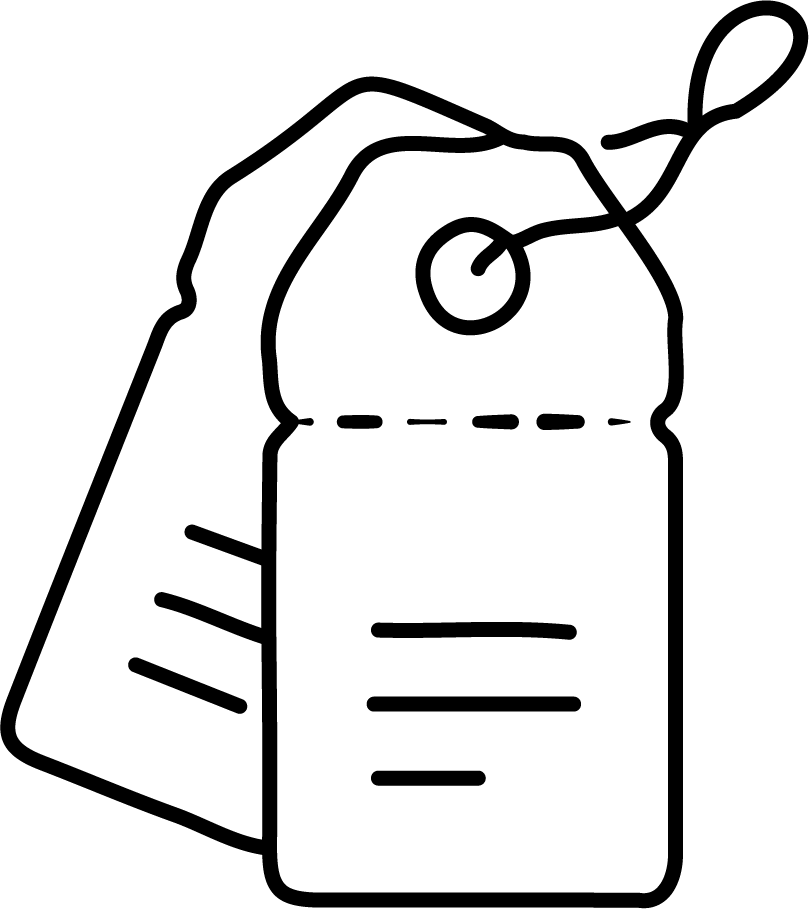The lemon. One of the lesser appreciated tools in the kitchen. It’s actually not a tool. You don’t buy it for that reason. But let’s face it, you always have 12 or zero. So the next time you are staring down a bag of lemons that make you question your ability to make bulk purchase decisions, here are a few suggestions to use them up before good old-fashioned dehydration does.
The easiest one that doesn’t require much acidic intelligence is a proper garnish.
First order of business, garnishing drinks.

There are no real rules for garnishing a drink with lemons. You can garnish your darker whiskey drinks to your martinis. Iced teas and lemonades, of course. And any soda works well with a lemon slice or lemon peel. All you need to pull off either is a a quality paring knife like this Zwilling Four Star Paring Knife or this Global Classic Paring Knife. To create a thicker peel you can use a vegetable peeler like this Zwilling Pro Y Peeler. Just make sure not to get too much of the pith (the white tissue under the yellow rind).
Next order of business, garnishing food.
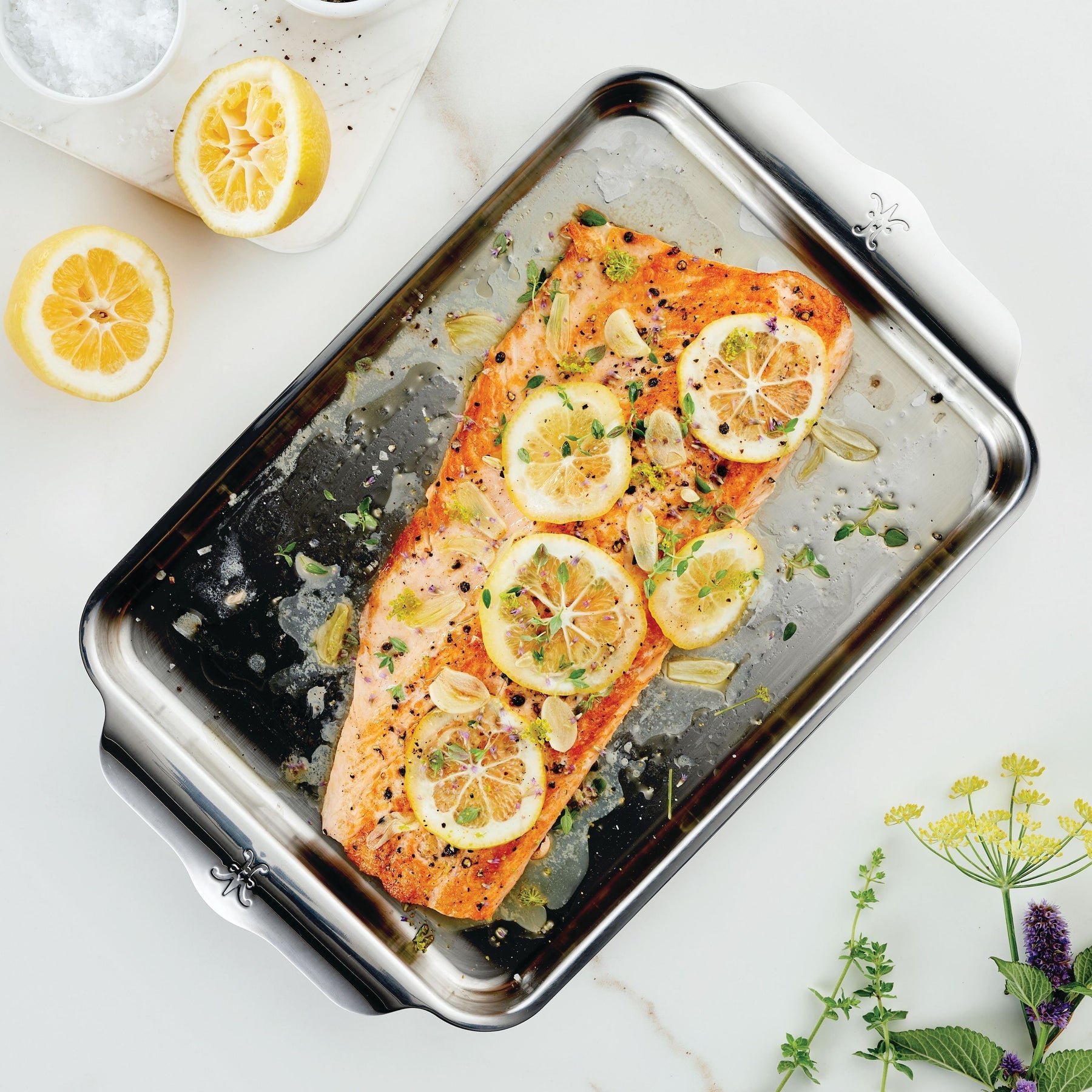
Other than supplying a nice pop of color to any presentation, a lemon can provide many appetizing and nutritional qualities to your dish. First of all, the acidity of the lemon can keep fruits and vegetables from browning. That’s kind of a big one. The lemon can also provide a little flavor upgrade to any dish as a replacement for salt. No, it’s not a briny fruit but millions of people with high blood pressure will tell you that lemon does the job without adding the unnecessary sodium. Also the lemon can tame, or let’s say balance, some of the foods that might have an overpowering taste like certain seafoods. For these instances a lemon wedge or slice will do and can also be handled by any serrated knife like this Zwilling Pro 5.5" Serrated Prep Knife. Some people prefer a serrated knife because the blade holds the lemon in place a little better while slicing.
Next lemon job description, zesting.
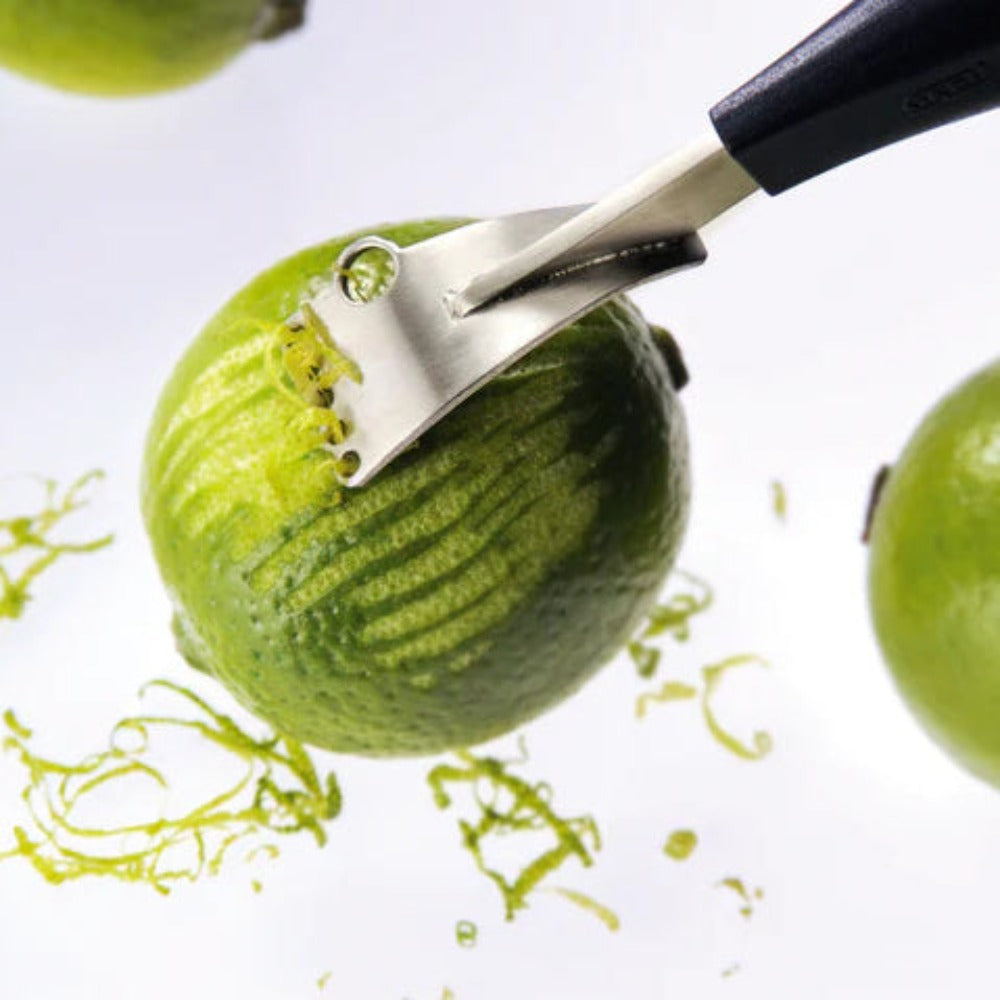
A lemon zest is the outer layer of a lemon’s rind, also called the flavedo, that has natural oils that provide a sweet and citrusy flavor without the acidity of the lemon juice. The zest is not only the outer layer, it’s the verb associated with the action and it is also what you call the resulting shavings. So basically you are zesting a zest from the zest. Guess what you can accomplish this task with. A zester. You can try this Gefu Baller and Zester Set. This zester has channel blades that give you longer strips of zest and a chiseling blade that you can make even wider and longer strips.
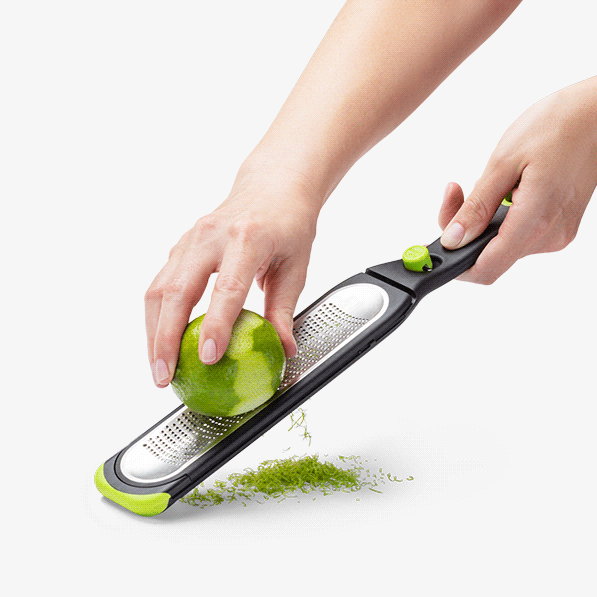
If you are looking for the finer shavings you’ll need this Dreamfarm Ozest that has super fine photo-etched microblades that result in almost powder like shavings. The resulting zest can be used for pancakes, baked goods, marinades, sauces, dressings. Mostly items where the zest can be mixed in with other ingredients or liquids. Most chefs would not advise using a zest as an actual topping.
Now cut to the juice.
We’ve touched on this but the juice of a lemon can be a valuable finishing touch on any plate. Before the plate you can use lemon juice in cooking to tenderize meats and seafood. Lemon juice can also preserve foods that are low in acid. Lemon juice can also break down powdered sugar and tenderize starches like potatoes. Lemon juice adds acidity of almost anything to allow for safe water bath canning. You can extract said juice with this farmhouse chic Casafina Fattoria White Juice/Citrus Squeezer.
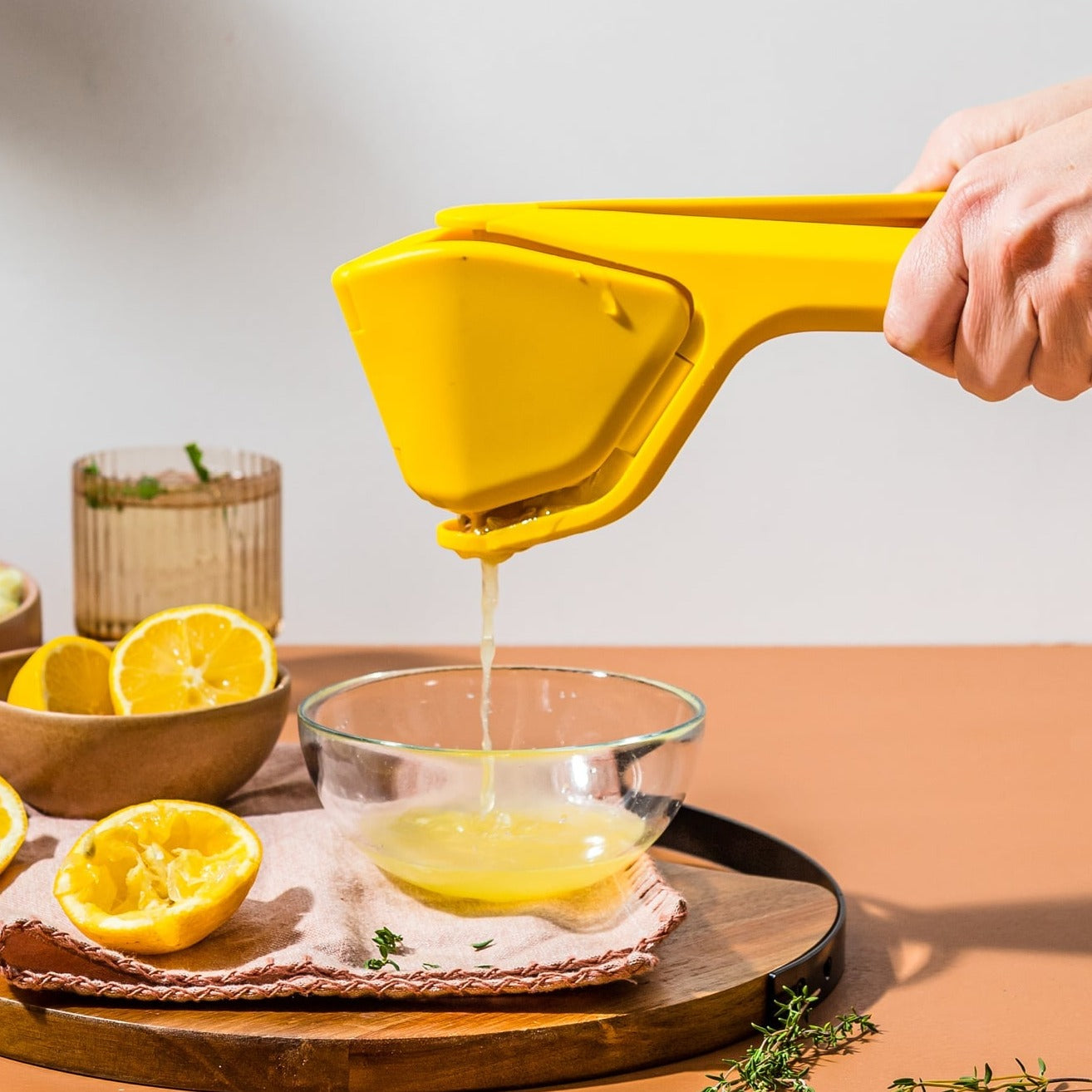
And the best for last, lemon juice in your beverages. We’ve touched on ways to garnish your beverage with a lemon, but if all you are looking for is flavor enhancement, let’s just get to the juice. And let’s just start with the most simple iteration of lemon juice in beverage - lemon water. Adding lemon to your water can do several small but amazing things to make your body feel better. And guess what, it tastes really, really good. So the downside is pretty minimal. Everything from heart health, immune system strength, iron absorbtion, even the high amounts of citrate have been linked to the prevention of kidney stones. So choose water or water’s BFF, iced tea, for about the easiest and least expensive healthy beverage additive. Lemon tea, iced or hot, can help with digestion, skin health and even relaxation. You can always add lemon’s BFFs, honey, mint or ginger, to any tea.
And we could probably write forever about lemon-inspired cocktails. Our favs would be whiskey sours, Tom Collins, lemon drops to Long Island iced teas, but we are a little worried what you might think of us so we’ll just cap it there. You can accomplish any of the above lemon beverage additive scenarios with this amazing juicer from Dreamfarm. They call it the Lemon Fluicer and you’ll never buy another one. It is the easiest squeeze in the history of hand juicers and it actually has a seed catcher for those seed-only lemon purists out there. Btw, to settle the debate, seedless lemons are totally fine. Even Martha has come around on this great citrus controversy.
Lemons for freshening up your kitchen.
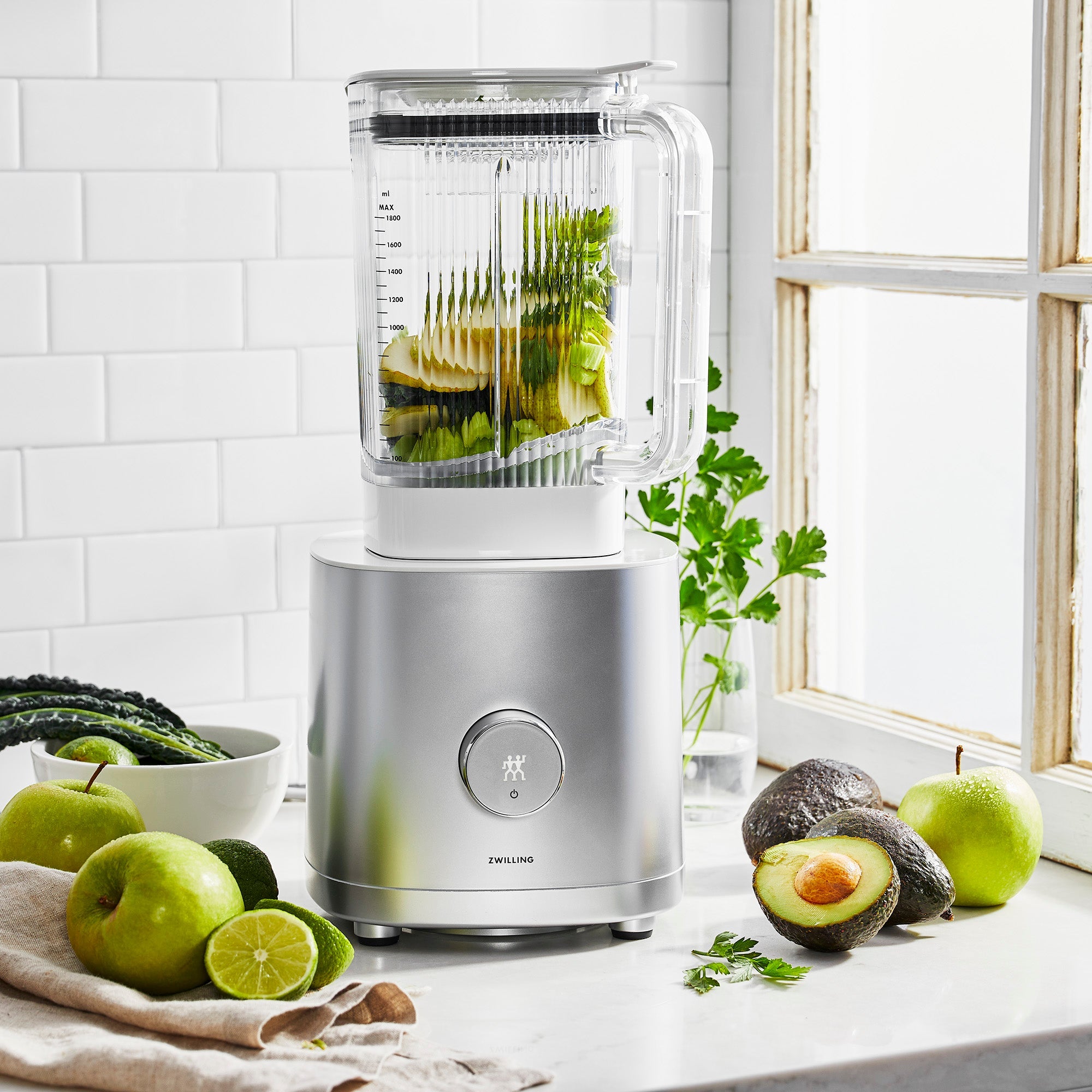
One use of the all-purpose kitchen dwelling lemon is for cleaning. Lemony citrusy scent proponents might tell you to drop a lemon wedge or peel in the kitchen sink and run the garbage disposal. Both for a fresh accent and a little blade cleaning. Garbage disposal manufacturers might not distribute the same advice so you might want to keep the lemon chunkage in pretty small pieces. A lemon can deodorize other spaces in your kitchen like your fridge. You can leave a few wedges in overnight and you’ll notice a difference in the morning. You can do the same thing with a few wedges in a dishwasher cycle that will deodorize AND help with your dishwasher shininess game. Both the dishwasher itself and whatever you had in that cycle.
Same goes for your blenders and microwaves, but use juice not solids. But the best use of a lemon in kitchen cleaning is wooden cutting boards and pots & pans. Applying a good citric acid half-lemon scrub to a wooden cutting board surface can annihilate bacteria, eliniate alkaline odors, and breakdown anything organic that is left on the surface. Not to mention that the half-lemon is a naturally abrasive scrubbing device. That scrubber can also be applied to your pots and pans - all metals. The citric acid will eliminate tarnish on all surfaces and remove any corrosion from the handle rivets. Lemon juice can be harmful to ceramic coated cookware so please make sure to use lemon any metal cookware.
Lemons for decor.
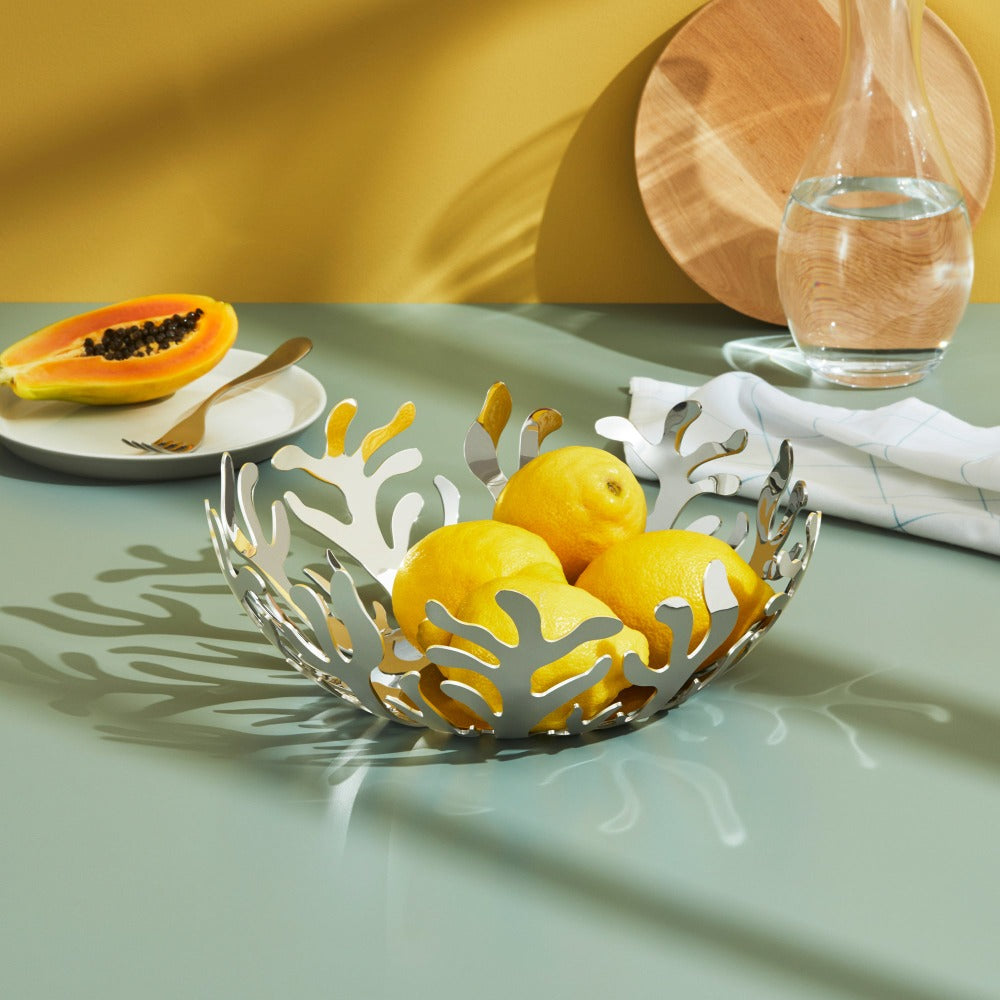
Lastly, and maybe should have been first chronologically, what to do with that giant bag of lemons when you get home from the store. Easy. Put ‘em in a nice serving bowl and keep them out as a centerpiece. A simple bowl like the Casafina Eivissa serving bowl will work. That big bag is an eyesore on the countertop and a pain in the pantry. And guess what, while you’re solving a practical storage problem, you are also solving an empty table or kitchen island decor problem. It will look like you tried…and all you did was dump a bag out into a bowl. Fancy bowls like this one from Alessi work well too. And whenever you need a lemon for your various deodorizing, cleaning, making beverages and food taster better duties, just visit your new lemon decor bowl!







